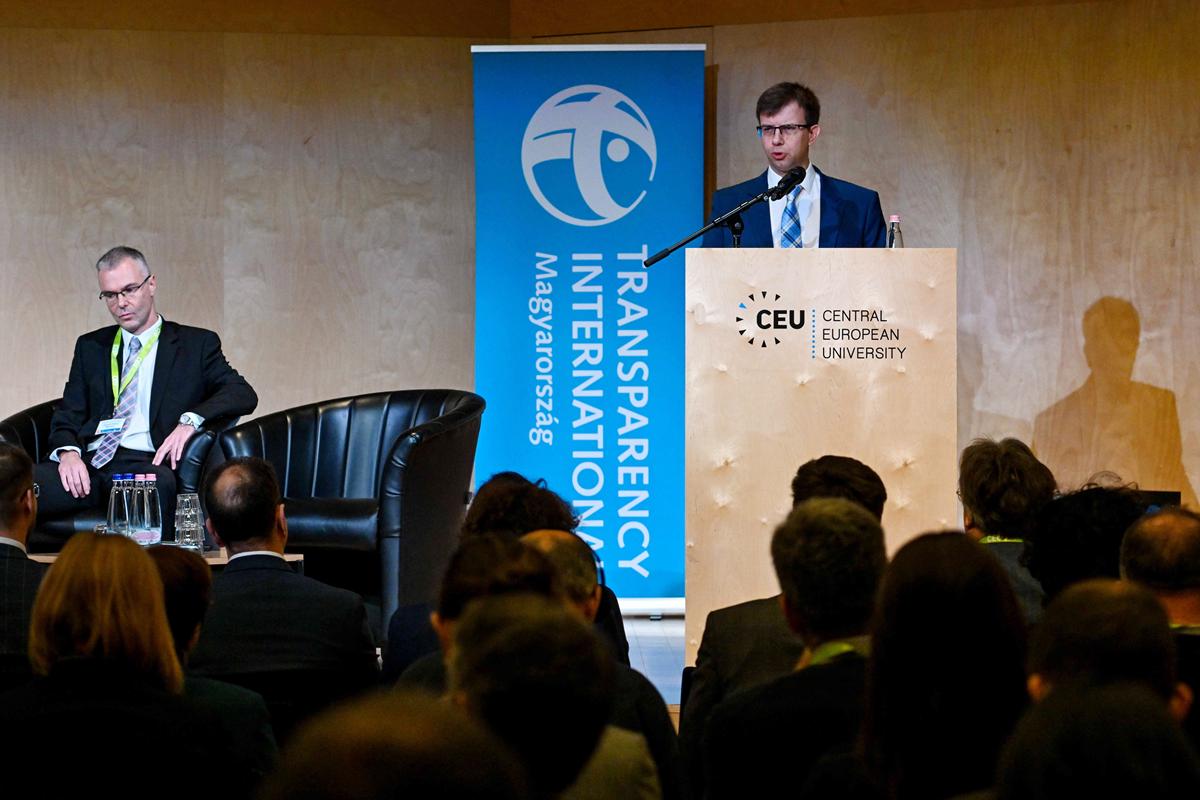EU Presidency – Minister Bóka: No EU mechanism to monitor rule of law compliance

European Union regulations currently do not make it possible to monitor EU institutions’ compliance with the rule of law, the EU affairs minister told an international conference in Budapest on Monday, adding that an aim of the Hungarian EU presidency was to explore ways to make up for the shortcomings.
Jónos Bóka told the event organised by Transparency International Hungary and the Connect Europe Association that rule-of-law procedures were “the greatest challenge” for the EU as they politicised the bloc’s fundamental values rather than reinforcing them.
“A deep and mutual distrust has been generated between member states and institutions, which makes sincere cooperation extremely difficult,” the minister told the conference called “Protecting European values and the EU budget – Rule of law and transparency: weak points in Hungary’s EU presidency programme”.
Bóka said Hungary was being attacked “for its interpretation of the rule of law as a sovereign and democratic country, and for pointing out double standards, inconsistencies and hidden political agendas” in the EU.
The Hungarian presidency has launched several initiatives to resolve those debates, he said.
Meanwhile, Bóka insisted there had been a shift in the European Commission’s approach to the rule of law. “The Commission’s report mostly tackles areas that are under member states’ purview. Making funding from the multiannual financial framework conditional on issues outside the EU’s competency is clearly crossing a line.”
“Making the rule of law transnational is part of creating a European constitutional federation … Some of the debates are focusing on the aim to turn the EU’s system of regulations into a value system. I am firmly convinced that the EU is a community of values. But that doesn’t mean that EU law should be turned into a system of values,” Bóka said.
A common norm that would allow punitive measures to be imposed when the rule of law is violated remained elusive, Bóka said. To achieve that, “we need a clear political mandate and a full-scale reform of the competencies of the EU and member states, with an emphasis on the protection of the latter,” Bóka said.
read also – Rapporteur on Hungary: Situation on rule of law further deteriorating in Hungary
At an informal meeting in Budapest early in September, EU affairs ministers have discussed strengthening the rule of law and the bloc’s competitiveness simultaneously, Bóka said. “The delegations agreed that those goals would best be served by taking the specificities of member states into account … but neither EU institutions nor the majority of member states supported a proposal to start working on the institutions’ better compliance with the rule of law,” he said. As an example, Bóka pointed to the oversight and transparency of asset declarations, which he said were considered a rule-of-law issue when violations of the norms were discovered in member states, but not when they were found in EU institutions.
Responding to a question, Bóka said Hungary continued to be “at the EC’s service” on continuing negotiations on frozen EU funding.
Regarding the execution of the EU court’s ruling to fine Hungary over its approach to migration, Bóka said talks with the EC were ongoing on that matter too. “It seems to me that many member states have come around to Hungary’s stance on regulating migration. Sanctioning the member state that is implementing that approach is undermining the credibility of the whole political procedure,” he said.
Bóka said the debate on European values should be conducted in talks between member states’ constitutional courts.
EC Vice-President Vera Jourova gave a speech at the event through a video link.
As we wrote two weeks ago, Transparency International said that the Sovereignty Protection Office report ‘unlawful’

